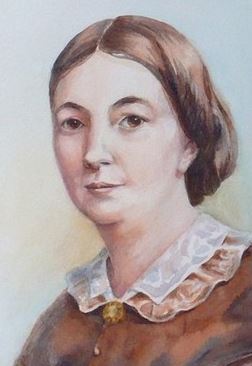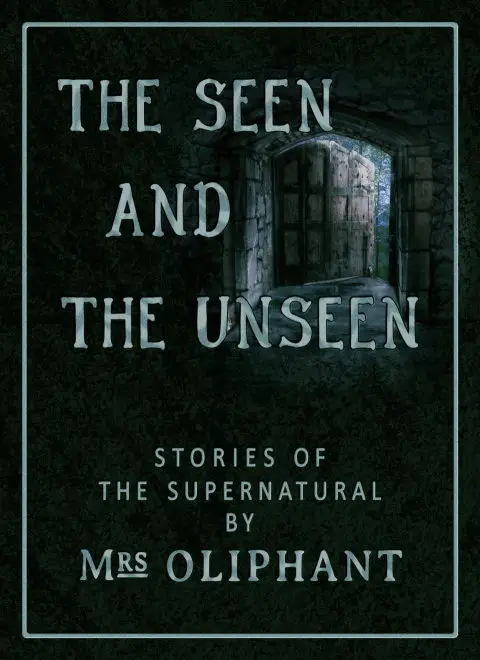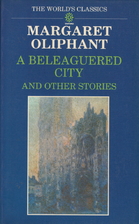Margaret Oliphant a Victorian-era Scottish poet was born on 4th April 1828 at Wallyford. During her literary career, she has written around 90 novels, 5 short stories, and 8 historical articles. While young, Margaret Oliphant had a habit of experimenting with various writing styles.
Margaret Oliphant- Life

While growing up she resided in Glasgow and Liverpool. In 1849, she published her first novel Passages in the Life of Mrs. Margaret Maitland which highlighted the Scottish Free Church Movement. Her second novel Caleb Field was published in 1851.
In 1851, she also received an invitation from William Blackwood to write for his magazine Blackwood’s Magazine. While working for the magazine she composed over 100 articles, essays, and novels. In 1853, Margaret Oliphant wrote one of the famous serialized novels Katie Stewart.
In 1852, Margaret Oliphant got married to her cousin Frank Wilson Oliphant and settled in London. Their marriage was short-lived. Francis died in 1859 due to tuberculosis. Margaret returned to England and continued as an author to support the financial requirement of her family.
During the middle 1800s, she had established herself as a notable author and collaborated with many eminent literary organizations. During this time, she also served as the literary mentor of a famous Irish novelist Emily Lawless. In early 1864, her only surviving daughter Maggie died and was buried in her father’s grave in Rome.
After the death of her only remaining daughter, Margaret Oliphant moved close to her sons and settled in Windsor in 1866. Her cousin Annie Louisa Walker also moved in with her and offered her help for household chores.
Both her sons collaborated with her and contributed to her literary works. Her younger son Cecco contributed to her literary work Foreign Classics for English Readers. His proficient contribution won him a position at the British Library.
Margaret Oliphant’s Notable Literary Works

Margaret Oliphant Ghost Stories
Margaret Oliphant’s ghost stories revolved around scrutinizing the core human values rather than using the elements of horror and suspense. Most of her ghost stories were inspired by the prejudices which she observed in Victorian Society.
Margaret Oliphant – The Library Window
The Library window is one of the short ghost stories that was published in Blackwood’s magazine in 1896. A young girl is the protagonist of the story who visits her aunt’s house in High Street of St. Rule (a fictional place). The young girl was fascinated by a window in that house that overlooked the library’s window.
The entire story is based on the narration of the protagonist on her encounter with the ghost of a murdered writer. It has been interpreted by various modern critics that the story highlighted the discrimination faced by women during Victorian English society.
Read- The Library Window.
Margaret Oliphant- The Open-Door Summary
This story is composed of the narrative viewpoint of a father who shifted with his family to Brentwood House (fictional place). Margaret Oliphant has beautifully crafted out an eerie description of the house.
The protagonist’s son is taken ill after an encounter with the ghost. In order to cure his son, the protagonist then sets out to unravel the mystery behind the open door and free the distressed soul.
Read- The Open Door PDF
Margaret Oliphant-A Beleaguered City

Margaret Oliphant’s A Beleaguered City focuses on the gothic apocalyptic theme where a village encounters the wrath of the undead. It is presumed by many critics that Margaret Oliphant drew insights for this novel from Henry Longfellow Wordsworth.
Read- A Beleaguered City
Margaret Oliphant- Writing Style
Margaret Oliphant mostly uses a narrative style of writing. This style adds the essence of reality where the protagonist shares his/ her experiences. Her supernatural stories are the perfect amalgamation of fiction and dark practicalities of society.
Margaret Oliphant Notable Works- Click here
Margaret Oliphant- Death
Margaret Oliphant lost both her son in the late 1800. Her elder son Cyril Francis died in 1890 and her younger son died in 1894. Post demise of both her sons, the emotional burden took a toll on her health. Her condition deteriorated drastically. She passed away on 20th June 1897 at Wimbledon.